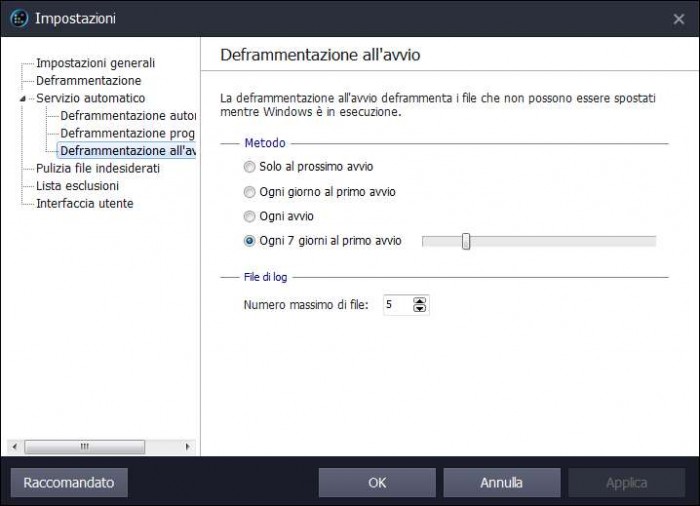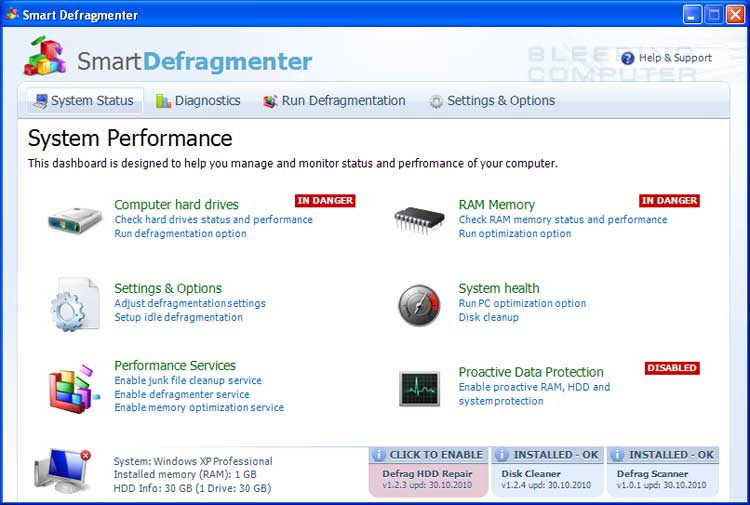Smart Defrag For Windows Vista


Gta San Andreas Extreme Edition 2011. Disk defrag your Windows with Smart Defrag freeware, Your first choice for defragging windows 10, 8, 7, XP and Vista. Download Free disk defragmenter now! Computer performance Vista download - Smart Defrag Vista download - Best Free Vista Downloads - Free Vista software download - freeware, shareware and trialware.
I have been using IOBit's Smart Defrag for some time now, and recently installed their latest version, 2.0.1. Every so often, I check Windows (XP) defragmenter and it always said I didn't need to defragment. However, I had Windows defragmenter do an analysis and it came up with a whopping 3,972 fragments AFTER SMART DEFRAG HAS FINISHED A FULL DEFRAG! Is there something wrong with the new Smart Defrag version, or is this a difference of opinion between two programs (how can their be a 'difference of opinion' about whether a file is or is not fragmented??). I've never come across this question in this direction.
Mostly people ask why a 3rd party tool finds file fragments that Windows, always Vista or 7, isn't finding. The Vista defrag does not affect fragments larger than 64 megabytes, as it would put more strain on the hard disk and take longer than it is worth in terms of performance benefit.. I don't know if the IOBit program uses the same rationalle as the Vista or 7 defrag, but that makes sense to me.
At any rate it illustrates how there can be a difference of opinion over whether a file is fragmented. Well, as mentioned in my original post, I still use XP (not Vista or 7) on my desktop, so it's XP's defragger that's in question. I probably do have some fragments larger than 64MB (which actually strikes me as kinda small, given the bloated size of Windows' files), but I can't reconcile that with SD saying I have NO fragments and WD (Windows defragger) saying I have 3,972. If WD ignores >64MB fragments and SD defrags everything (don't know that it does and there's no setting for that), why does SD say I have no fragments while WD identifies 3,972? I.e., it should be the other way around; SD should see and go after ALL the fragments while WD would ignore some and would therefore report FEWER fragmented files than SD. Click to expand.I'm glad it works well for you.
I downloaded and installed it just to try it out. My drive had already been defragged twice before I installed it, so I didn't expect it to find many fragmented files, and it didn't: 32 with 123 fragments. I then told it to defrag those files. It took 28 minutes to defragment 32 files...
Just under 1 minute per file. This is the slowest speed I've ever encountered in a defragmenter -- slower than Windows defragger, which is saying a lot.
Smart Defrag would have dispensed with this many fragmented files in about 2 minutes. So I have uninstalled it. I, nonetheless, appreciate your mentioning it because it gave me a chance to try another program. Click to expand.I've been wondering the same thing. Windows is the OS and they provide a defragger that (presumably) is designed to make Windows run as efficiently as possible.
The 3rd-party defraggers promote two things: Speed and optimization. In my tests, there is no doubt that Smart Defrag is much faster than WD (Windows Defragger). And it also purports to 'optimize' the files by moving those accessed most frequently to the outer tracks of the drive.
Cara Share Data Antar Komputer Dengan Wifi. But I have no evidence that my programs open quicker after a SD defrag than they did before. That may be due in part to the fact that while my laptop has Win 7, my desktop has XP SP3 with 2GB RAM, an E8400 Core 2 Duo CPU, and a 500GB 7200RPM Seagate HDD -- a relatively fast machine. I don't really encounter anything running slow except Firefox, but it seems like every time it's slow, it's the site, not the browser.
All of this still doesn't answer my fundamental question: How can a 3rd-party program like Smart Defrag say that everything is defragged while Windows' defragger says I have 3,972 defragmented files!? Hi DK Taber, This issue comes up every so often. IMO, the reason for the discrepancy is that different defrag utilities use different parameters and different algorithms to determine how bad a disk is fragmented. Some limit the size of the files the address, others stress the amount of free space, while others stress file placement ('the closer they are to the center, the faster they will be accessed'), etc.
Comments are closed.